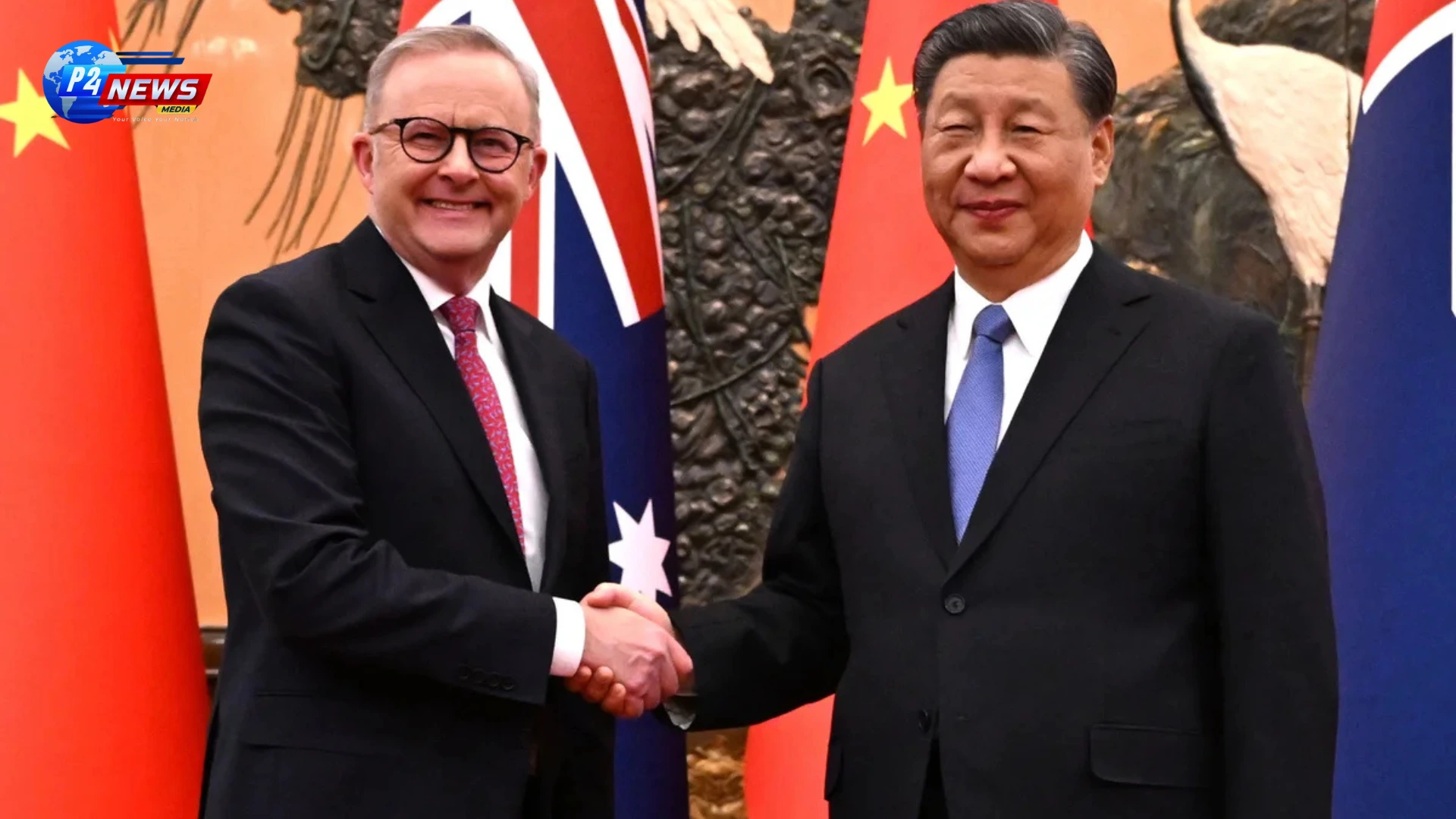As Prime Minister Anthony Albanese and Chinese President Xi Jinping convene at the G20 summit in Rio, they focus on improving bilateral relations, highlighting past challenges and future opportunities in their partnership.
As Prime Minister Anthony Albanese and Chinese President Xi Jinping convene at the G20 summit in Rio, they focus on improving bilateral relations, highlighting past challenges and future opportunities in their partnership.
During the recent G20 summit held in Rio de Janeiro, Brazil, Prime Minister Anthony Albanese and Chinese President Xi Jinping engaged in discussions on their countries' evolving relationship. This meeting, which took place on the sidelines of the summit, was significant as it marked the third encounter between the two leaders, signaling a positive shift in ties that had previously faced numerous challenges.
President Xi characterized the relationship as having endured "twists and turns" over the last decade while emphasizing the importance of nurturing the partnership between Australia and China. He stated, "We have made some progress in China-Australia relations and also witnessed some twists and turns," indicating a path forward for both nations. The meeting lasted for approximately 30 minutes, emphasizing the significance both leaders place on fostering stronger bilateral ties.
Relations between Australia and China deteriorated under previous Australian governments, particularly due to several contentious issues. Australia's foreign interference laws, its involvement in the AUKUS security pact with the United States and the United Kingdom, and inquiries into the origins of COVID-19 strained the diplomatic rapport. Consequently, China imposed tariffs on certain Australian exports, negatively impacting sectors such as wine, beef, barley, and rock lobster.
However, Prime Minister Albanese was optimistic during his opening remarks, highlighting a positive trend in trade. He noted, "Trade is flowing more freely to the benefit of both countries and to people and businesses on both sides," reflecting hope for recovery and growth in economic interactions.
Both leaders were positioned at tables adorned with purple orchids, symbolizing the delicate yet significant nature of their discussions. The meeting's importance was further amplified by the fact that it took place exactly ten years after the signing of a comprehensive strategic partnership agreement between Australia and China during President Xi's previous visit to Australia.
President Xi expressed a desire for the two nations to work collaboratively to ensure that their comprehensive strategic partnership evolves into a more mature and stable alliance. "I wish to work with you, Mr. Prime Minister, to make our comprehensive strategic partnership more mature, stable and fruitful and inject more stability and certainty to the region and the wider world," he stated, indicating a commitment to enhancing bilateral collaboration.
Despite progress, challenges remain within the Australia-China relationship. Ongoing concerns include China's military maneuvers in the South China Sea, the detention of Australian writer Yang Hengjun, and the implications of the AUKUS security pact. Nevertheless, President Xi's visit to South America included several high-profile meetings, as he sought to bolster alliances with countries like the United States, New Zealand, Japan, and others.
While attending the G20 summit, Prime Minister Albanese also conducted meetings with other global leaders, including British Prime Minister Keir Starmer and European Commission President Ursula von der Leyen, reflecting Australia's active role in global diplomacy.
In a broader context, President Xi's visit and discussions at the G20 occur against a backdrop of increased tensions related to trade and political rivalry, particularly with former U.S. President Donald Trump's stance on trade issues. Mr. Xi appealed for unity among world leaders to resist protectionist policies, a call that aligns with the long-standing Australian commitment to free trade.
Furthermore, President Xi extended an invitation for Prime Minister Albanese to visit Beijing for the upcoming leaders' discussions in the following year. A spokesperson for the Prime Minister referred to the meeting as a necessary "stocktake" of progress in trade and engagement, emphasizing the importance of ongoing dialogue and cooperation between the two nations.
In conclusion, the meeting between Prime Minister Anthony Albanese and President Xi Jinping at the G20 summit marks a crucial step toward rejuvenating the Australia-China relationship. As both leaders seek to navigate past conflicts and explore potential opportunities for collaboration, the focus remains on the significance of trade and mutual benefit.
Like
Dislike
Love
Angry
Sad
Funny
Pray
9th Ayurveda Day in Melbourne: A Celebration of Ayurvedic Innovations and Global Health Impact
November 10, 2024Australia’s Terror Alert Jumps to ‘Probable’: What You Need to Know About the Increased Risk
August 05, 2024🍪 We Value Your Privacy and Experience Hi there! We use cookies to enhance your browsing experience, provide personalized content, and analyze site traffic. By continuing to use our site, you consent to our use of cookies.







Comments 0